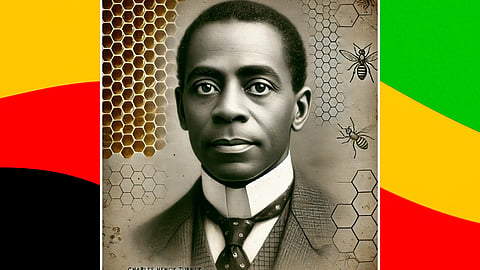
- Home
- About Us
- SOULIVITY TODAY Radio Show!
- COMMUNITY HUB
- GO SHOP by Soulivity!
- ColumnsColumns
- CultureCulture
- Lifestyle
- Contact Us!

Charles Henry Turner was born on February 3, 1867, in Cincinnati, Ohio. Growing up in a segregated America, he pursued education with determination, earning a Bachelor’s and Master’s degree from the University of Cincinnati in 1891 and 1892. His thirst for knowledge led him to become the first African American to earn a Ph.D. in Zoology from the University of Chicago in 1907.
Despite facing racial discrimination that barred him from securing a university faculty position, Turner made significant strides in entomology (the study of insects) and animal behavior. His pioneering research proved that insects are capable of learning, memory, and problem-solving—ideas that were revolutionary at the time.
First to demonstrate that insects can hear and respond to sounds (1914).
Discovered that honeybees can see color and patterns (1910), refuting claims that insects had limited visual perception.
Proved that ants and cockroaches can learn through trial and error, an early study in animal cognition.
Published over 70 scientific papers despite limited resources and racial barriers.
Turner wasn’t just a scientist—he was also a passionate educator. Since prestigious institutions refused to hire Black professors, he spent much of his career teaching in segregated schools, particularly at Sumner High School in St. Louis, Missouri. He mentored and inspired countless Black students, encouraging them to pursue careers in science despite systemic racism.
He also used his platform to advocate for racial equality. Turner was an outspoken critic of segregation and actively participated in efforts to improve education for African Americans.
Turner passed away on February 14, 1923, but his work continues to influence modern science. His discoveries laid the foundation for later research on insect intelligence and animal cognition. In his honor:
The Charles Henry Turner Award was established by the Animal Behavior Society to support diversity in STEM.
A school in St. Louis, Missouri, was named after him, celebrating his contributions to science and education.
His research on honeybee learning inspired Nobel Prize-winning studies on insect behavior decades later.
Charles Henry Turner’s legacy is one of perseverance, intellect, and an unshakable belief in the power of knowledge. In the face of discrimination, he carved out a space for himself in the scientific world, changing how we understand the minds of insects and paving the way for future generations of Black scientists.
During Black History Month, his story reminds us that greatness often comes from those who challenge boundaries and dare to see the world differently.
